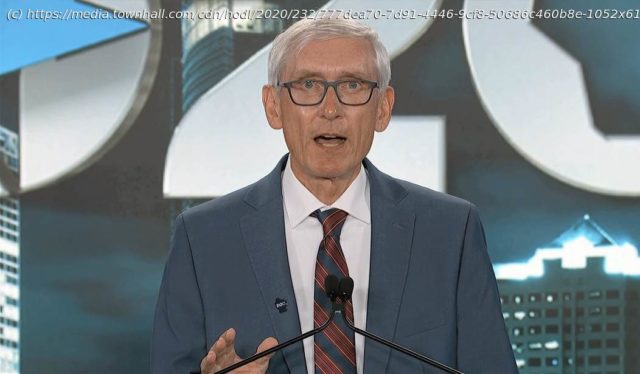Evers’s declaration of emergency over SNAP benefits raises questions about political motivations.
Evers’s SNAP “Emergency” Is Politics Posing As Public Safety
Ever throw a snowball at a street light pole? When you hit it (two tries last winter! I’m old), a majority of the snow sticks to the wood, while swarf flies off behind.
Please stick with me.
Imagine the Schumer Shutdown as the snowball, and Wisconsin Governor Tony Evers as a minuscule piece of swarf, flying in space.
That was a long way of saying, Evers remembered to turn his fax machine on and read the left’s talking points for the shutdown.
In what I believe is a cry for relevance, Tony Evers declared a state of emergency over the Schumer Shutdown, using the excuse of a potential lapse or delay in SNAP benefits, then wrapped it in a sobbing rhetorical blanket, draping it in the language of «abnormal economic disruption.»
Translation: a press-release siren to cue the media.
Evers flipped the anti-gouging switch for a federal fund fight rather than a true statewide breakdown—not leadership, but optics.What An “Emergency” Means In Wisconsin
On a whim, I asked ChatGPT for reasons why a U.S. state governor would declare a state of emergency. I did it for two reasons: to see what reasons are listed, and second, to see if the AI was already redefining what a state of emergency is.
Here’s ChatGPT’s definition:
Basically, a governor might declare a state of emergency for natural disasters—think hurricanes, floods, wildfires—or for a major public health crisis, like a pandemic. Sometimes it could be for civil unrest or something like a major infrastructure failure.






